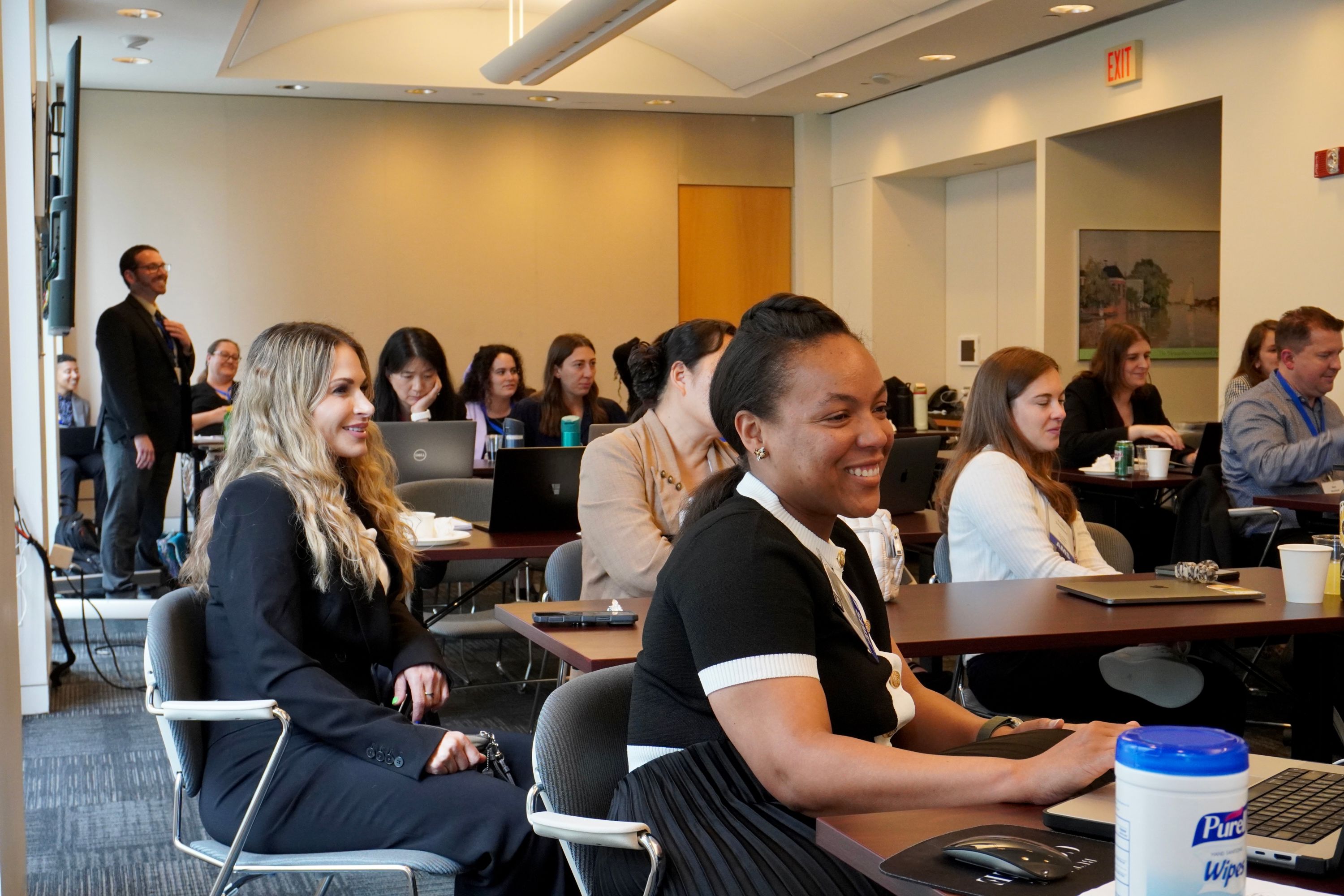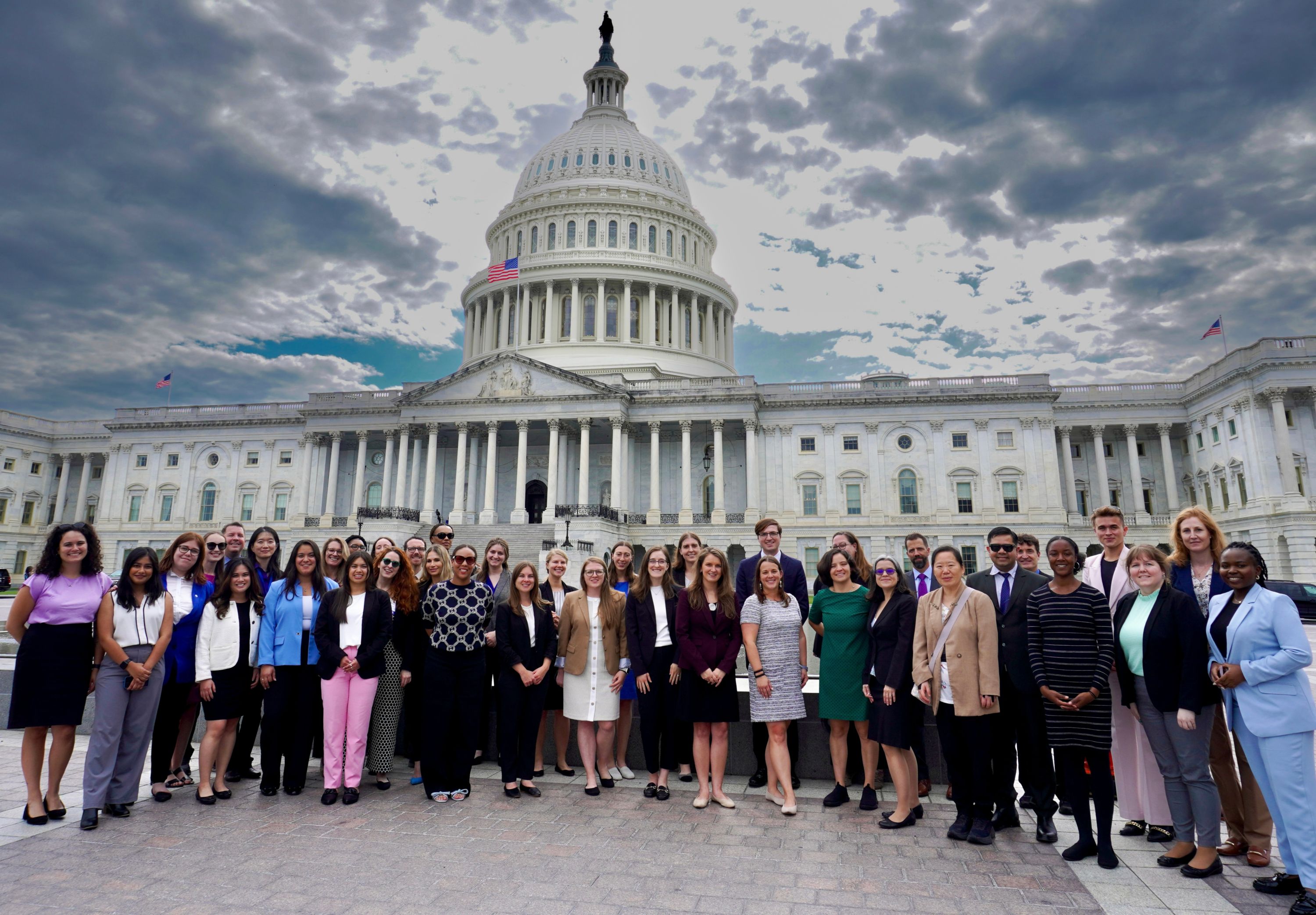The AMS Science Policy Colloquium:
- Provides an overview of policy basics, and how decisions are made governing the course and future of earth and atmospheric sciences
- Provides opportunities for participants to meet and dialog with the federal officials, Congressional staffers and others who make those decisions
- Surveys current science policy issues
- Uses the case study method to explore a limited number of issues, both past and present, in depth and detail
- Helps participants build skills, experience, and contacts they can use throughout their careers to understand and influence the policy process
- Helps participants gauge their aptitude for and interest in the challenges of matching science to national priorities, and scientific program leadership
Who can attend?
- Early and mid-level federal managers and scientists
- Mid-level private-sector executives
- University faculty
- Selected graduate students and postdoctoral fellows of demonstrated scientific and leadership potential
Format
The 2025 AMS Science Policy Colloquium will be held in a hybrid format, consisting of both in-person and virtual sessions. In-person sessions will take place in Washington DC from Sunday, June 1 - Friday, June 6, 2025. A virtual session in early May will provide participants a Colloquium overview as well as an opportunity for self-introductions. A follow-up virtual session will introduce participants to the group legislative exercise (at that time participants will be assigned to small groups who may subsequently schedule their own virtual sessions to continue the group exercise prior to the June 1 arrival in Washington, DC).
Follow-on virtual sessions in summer 2025 (exact dates to be determined) will explore a range of additional topics that complement the in-person sessions. These topics involve policy-players widely dispersed geographically (in some cases globally) and so best lend themselves to the virtual format. Featured topics may include:
- Public-private-academic partnerships, domestically and internationally
- Place-based (state and local) science-policy engagement
Virtual sessions will likely last 2 hours with one or two sessions on the scheduled days.
All Colloquium sessions will be held under a modified version of the Chatham House Rule:
Participants are free to use the information received at the Colloquium but attribution of speakers' remarks is not allowed without express permission.
The Chatham House Rule originated at Chatham House with the aim of providing anonymity to speakers and to encourage openness and the sharing of information. It is now used throughout the world as an aid to free discussion. Meetings do not have to take place at Chatham House, or be organized by Chatham House, to be held under the Rule.
Additional details
- Participation is limited to no more than 40 participants
- Attendance at all in-person sessions is required. Attendance at virtual sessions, while not mandatory, is highly recommended as an opportunity to expand upon material covered in the in-person sessions and to network with peers and experts in the policy arena
- A tuition fee of $4,700 includes all sessions, workshops, tours/briefings, and materials. Please note: the $4,700 tuition fee does not include room and board or travel
- Students and faculty members can apply for financial support. A funding award covers the tuition fee, room and board, and travel. Faculty members must be from an HBCU or MSI in order to qualify for funding
- Early and mid-career scientists and professionals can apply for the Hooke Fellowship in Policy and Leadership to cover the costs of tuition, room and board, and travel
- In-person sessions will take place in downtown Washington DC
- Hotel room block available at the Washington Marriott at Metro Center
Past agendas
Download the 2024 in-person agenda here.
Download the 2023 in-person agenda here.
Download the 2022 in-person agenda here.
Please note participants are expected to attend all in-person sessions. Participants use breaks and meals to work on group exercises and for networking. The Colloquium is an intensive experience. Multi-tasking during the sessions is highly discouraged and will lessen the impact of the course.
Reading materials
The experience is most rewarding to participants who have done preparatory reading. We recommend:
- Introductions to the U.S. Federal budget process:
- Understanding the U.S. Congress
- CRS: Committee Types and Roles (House and Senate)
- CRS: Introduction to the Legislative Process
- CRS: The Committee System in the U.S. Congress
- Understanding the White House
- Introduction to U.S. science policy
- Beyond Sputnik: U.S. Science Policy in the 21st Century, Homer Alfred Neal, Tobin Smith, and Jennifer McCormick (400pp). If you need assistance acquiring this book, contact [email protected].
- Working with Congress: A Scientist’s Guide to Policy, Kasey. S. White and Joanne C. Carney (78pp)
- The legislative language for the group exercise (this will be assigned later)
Where are they now?
The first Science Policy Colloquium (formerly the Summer Policy Colloquium) was held in 2001 for about 40 bright minds from the AMS community who showed interest in and potential to contribute significantly to the policy process. To date, over 800 such individuals have completed the program. They have proceeded through their careers to roles such as:
- Congressional staff in personal offices
- Serving on congressional committees such as the Select Committee on Global Warming & Energy Independence
- University leadership positions such as faculty chair and dean
- NGO think tanks
- High level government positions including leadership of the National Weather Service (NWS), the Office of Science and Technology Policy (OSTP), and the U.S. Global Change Research Program (USGCRP)
- Greater corporate sector responsibilities
- AMS Policy Program
What alumni say about their experience
Several graduates of the Science Policy Colloquium have written about their experience and what they learned. Here are a few of those articles:
"Finding My Flow in Policy" by Jacob Snyder
"An Immigrant Scientist's Experience at the AMS Science Policy Colloquium" by Akanksha Singh
"Addressing Extreme Heat and Climate Change Adaptation" by Jessica Stewart
"When Wildfires Know No Boundaries, Scientists Must Cross Disciplines" by Natasha Dacic
"A Week in Washington for a Student Scientist" by Haven Cashwell
"Science Policy: Using Your Voice to Inform and Inspire" by Aaron Goldner, Jennifer Henderson, and Owen Shieh
"DC 101: Where Science and Policy Meet" by Angela Colbert
"What We Did On Our Summer Break" by David Schultz, Scott Richardson, Yvette Richardson, Russ Schneider, and Mark Shafer

